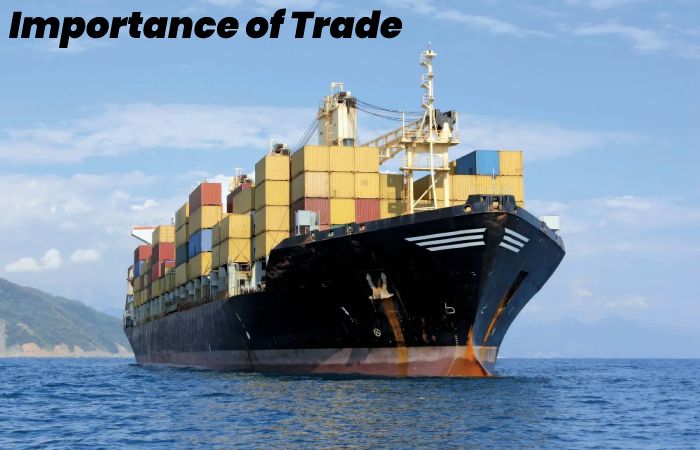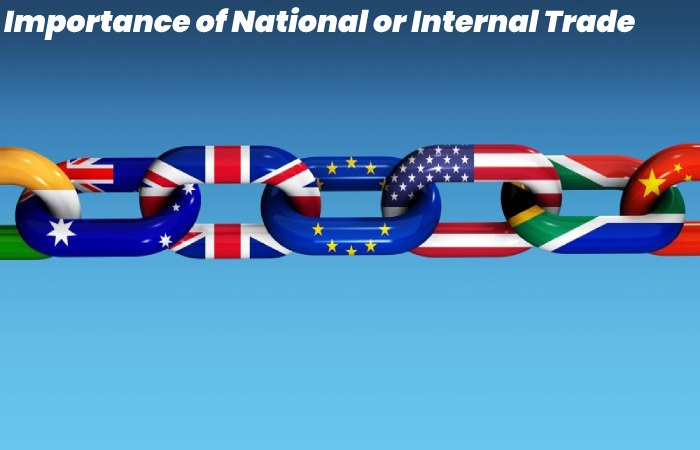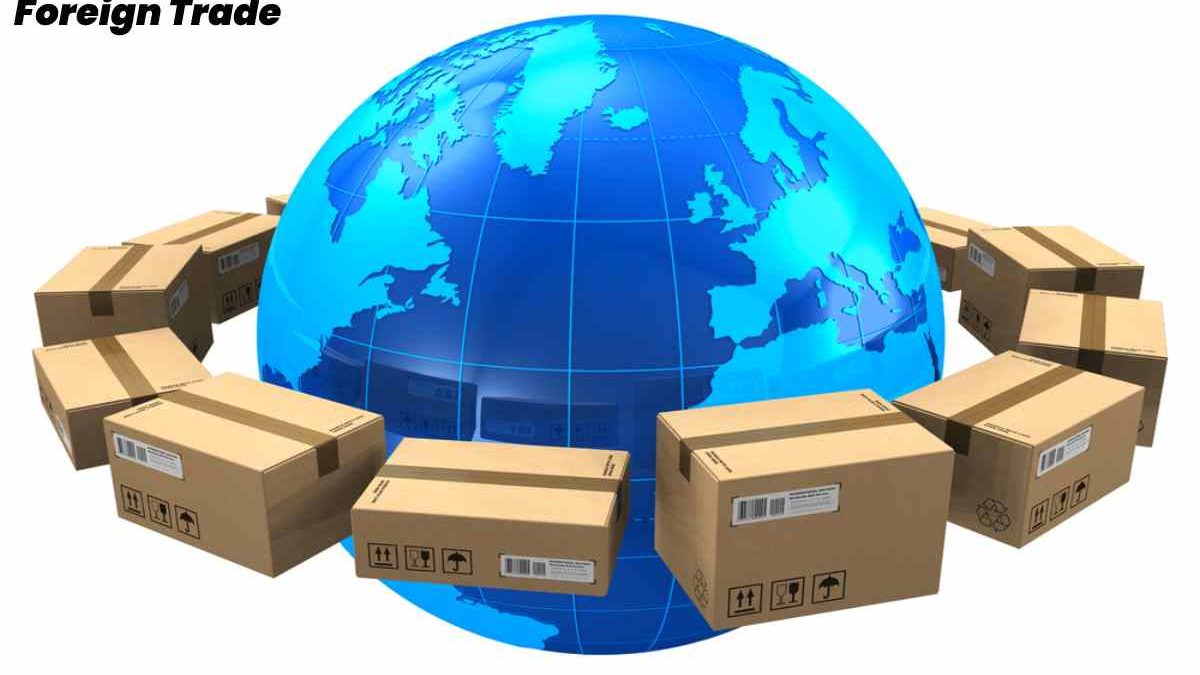Table of Contents
Trade Definition
Trade is the exchange of goods and services between various gatherings in the conversation for different goods and services of equal value or in exchange for money.
The creation of money as a tool of exchange has made it possible to simplify trade significantly, making it easier for one of the parties to deliver cash in business instead of other goods or services, as was the case with barter.
Trade exists thanks to the division of labour, specialization and different sources of income. Since most people focus on a tiny facet of production, they need to skill with others for goods and services other than those they produce. As a result, trade exists between different areas mainly due to the different conditions of each part, and some areas may have a comparative advantage over a product, promoting its sale to other regions.
Types of Trade
You can distinguish between:
- Retail Trade (retail trade): It dedicates to the direct sale of individual products or in small quantities to consumers (such as a greengrocer, for example) and
- Wholesale Trade (wholesale trade): merchants who sell their products to shops, intermediaries, or other businesses.
Importance of Trade

Since the emergence of the first people, trade has been a central part of human life. The Phoenician people, for example, in the 10th period BC, without taking an army, spread their culture throughout the Mediterranean, building large ports and boats, even inventing the alphabet to able to carry out their transactions. These first commercial explorations transform relations between territories. The conversation of goods between people stop increasing over the years, but it is growing faster and faster. The way it produces has also changed, from road vendors to globalization and the big corporations of the 21st century. See foreign trade
History of Trade
This activity is as old as humanity. It arose when some people produced more than they needed; however, they lacked other primary products. So they went to local markets, and there they began to exchange their leftovers with other people; that is, to practice barter.
Origin of Trade
Towards the end of the Stone Age, in the Neolithic (between about 9,000 to 4,000 years BC), trade began to practise in this way, when agriculture originate for subsistence.
The objective of this, in principle, was to meet the basic requirements of man, such as food and clothing, on which they focused their work on covering them. However, given this and due to the growth and development of society, in addition to the harvests obtain through agriculture that was increasingly numerous thanks to technology, new demands were emerging that had to cover, so with these first steps, the origin of the trade that we know today to promote.
Types of National Trade
In what is the national trade, two classifications appear based on the type of buyer in which we guide. Therefore we can find two branches of national work:
- Retail trade: It is the one that offers its services or products directly to the final consumer. As an example of this category in retail or retail, we find supermarkets or small businesses.
- Wholesale trade: In the distribution chain, it is in charge of supplying the products or services to the different retail businesses. It acts as a middle between the producer and the final consumer.
- In today’s digital age: electronic commerce coin since they produce a contribution to the country’s economy and can be a retail or wholesale type of business.
Differences Between Domestic and Foreign Trade
In simple terms, foreign trade is the exchange of goods and services that a particular country carries out with other nations, that is, at the international level, both to satisfy the demand for products that it cannot produce by itself and to offer national products, for This differentiates the action of buying and selling in exports, when a product that is made in the nation is sent, for consumption in other countries, and imports, when products are brought from other countries for the nation’s internal consumption.
Now knowing What National and Foreign trade is, we can Highlight some of their Notorious Differences:
Foreign trade is those international businesses for the exchange of goods and services with other countries; On the other hand, national trade is the exchange of goods and services between inhabitants of the same land, say Ecuador, Spain or the United States.
In most cases, the monetary capital used for internal trade transactions is the currency of the country itself. For example, the Mexican peso is used to buy groceries in Mexico. At the same time, in foreign trade, transactions are made based on the most widely. Is accepted currency at the international level, as is the case of the US dollar.
Importance of National or Internal Trade

Any commercial activity has a positive effect on the economy. Still, there must be a constant flow for there to be a change in the national economy, thanks to the production of a flow of merchandise, which means that there is a continuous flow of money that endows a country with a large volume of economic activity.
In addition, the internal market of national trade makes the state generate income through the payment of taxes. In addition to that, the increase in business guarantees an increase in production, so imports would not be necessary to satisfy national demand. If conclusion, national trade helps the development of nations, so it is essential to know this topic in depth.
Where can I learn more about Domestic Trading?
In today’s globalized market, it is necessary to emphasize what national and foreign trade is. To understand how each of them acts and how it influences the economy of a nation. The Euroinnova Business School invites. If you to search among its more than 19,000 courses, the one in the area of economics and commerce. If so that you can find the one that best suits your subject of expertise. You can continue expanding your knowledge and preparing for a great professional future.
Commercial Code of Trade
A commercial code is a systematized and unified set of rules of commercial law intended to regulate all forms of commercial exchange in a country and which is part of its specific legal framework. This type of treaty arose from the French Enlightenment and specifically from the legal changes introduced by Napoleon Bonaparte.
Currently, the commercial codes, together with specific special laws, allow regulating the commercial exchange to guarantee its performance according to basic principles, which respect the fundamental laws of each society.
World Trade Organization
The WTO is an international organization headquartered in Geneva, Switzerland, founded in 1995. Its mission is to administer a series of agreements between affiliate nations.
Thus, it guarantees that international trade is carried out most healthily and reasonably possible, thus helping producers and exporters of goods and services integrate. At the supply and demand of an increasingly globalized world economically.
It is made up of 164 different nations and a group of observer nations, who act as impartial judges between the negotiations that take place within it. On the other hand, this organization is not part of the United Nations Organization or financial organizations. Such as the World Bank or the International Monetary Fund.
Conclusion
Trade is any form of financial activity that exchanges or moves goods or services between the different possible economic actors. It is one of the oldest and most fundamental human activities. On establishing the first economies and the flow and expansion of cultures.
Commercial activity has been part of human beings’ main and majority occupations throughout history. If especially after the rise of the bourgeoisie to power after the Rebirth and the subsequent start of capitalism.
In this sense, the creation of money was essential for its development. It allows the establishment of a method of appraisal or assigning. Its values on the same scale as different products and services. Which should give at the beginning of humanity according to barter.

